Effective Strategies for Eliminating Mosquitoes Indoors
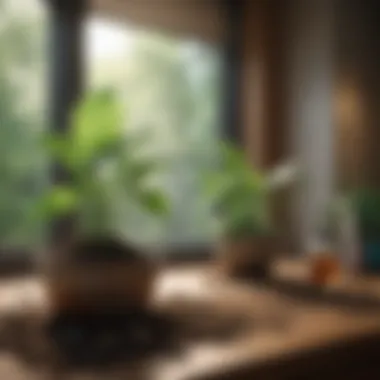
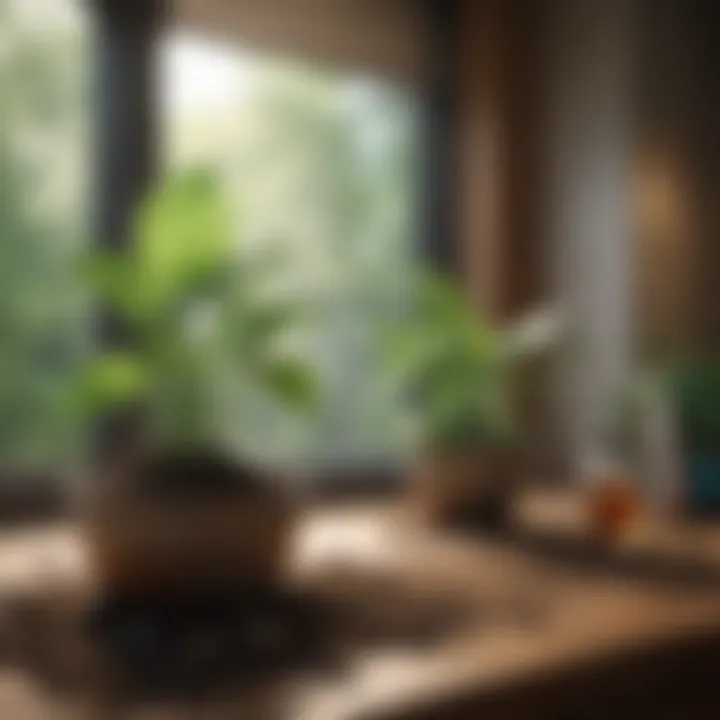
Intro
Mosquitoes are not just a nuisance; they pose serious health risks. Whether you're a homeowner, party host, or gardening enthusiast, understanding how to effectively eliminate mosquitoes in your living space is crucial. This article delves into various strategies aimed at eradicating mosquitoes from your home. From preventive measures to specific elimination techniques, we will provide detailed and actionable guidance. By the end, you will have a comprehensive understanding of how to maintain a pest-free environment.
Preventive Measures
Taking steps to prevent mosquitoes from invading your home is the first line of defense. Here are some effective preventive measures:
- Eliminate Standing Water: Mosquitoes breed in standing water. Check for stagnant water in plant pots, bird baths, or clogged gutters.
- Use Screens: Installing window and door screens can be an effective barrier against mosquitoes. Ensure there are no tears or gaps.
- Keep Doors Closed: Simple but effective, always ensure doors close promptly to prevent entry.
"Preventive measures are the foundation of a mosquito-free home. Prioritize these strategies to minimize future infestations."
Elimination Techniques
If preventive measures fail, it may be necessary to take further action. Here are specific methods to eliminate any existing mosquito population:
- Insecticides: Products containing pyrethroids can be effective. Consider using brands like Raid. Always follow the instructions for safety.
- Natural Remedies: Essential oils, such as citronella and eucalyptus, can repel mosquitoes. Diffuse oils or create sprays to treat indoor areas.
- Traps: Mosquito traps can help reduce the population. Look for devices specifically designed for indoor use.
Seasonal Strategies
Understanding seasonal patterns in mosquito populations can aid in effective management:
- Spring: Focus on eliminating standing water as temperatures begin to rise.
- Summer: Increase the use of repellents and traps as mosquito activity peaks.
- Fall: As temperatures drop, continue preventive measures to avoid late-season infestations.
Here, adopting a proactive approach will keep your living space comfortable and safe from mosquitoes year-round.
Maintenance and Upkeep
Regular maintenance is vital to ensure your home remains mosquito-free. Consider the following checklist:
Seasonal Maintenance Checklist
- Inspect gutters for debris
- Clean and empty bird baths weekly
- Trim excess foliage that provides resting places for mosquitoes
Cleaning and Organization Tips
- Organize backyard shed to eliminate clutter where mosquitoes can hide.
- Regularly clean indoor spaces, particularly corners, to remove any mosquito larvae.
Understanding Mosquito Behavior
Understanding mosquito behavior is crucial in the fight against these pests. By comprehending how mosquitoes live, reproduce, and are attracted to indoor settings, homeowners can apply more effective elimination strategies. Knowledge about mosquito habits leads to targeted preventive measures that significantly reduce the likelihood of infestations. This section highlights essential elements that contribute to a holistic approach to mosquito control.
Life Cycle of Mosquitoes
The life cycle of mosquitoes is divided into four distinct stages: egg, larva, pupa, and adult. Each stage lasts a different amount of time and is crucial for the mosquito's survival and reproduction.
- Egg: Female mosquitoes lay hundreds of eggs in stagnant water. The eggs typically hatch within 24 to 48 hours.
- Larva: Once hatched, the larvae live in water and feed on organic materials. This stage lasts about a week.
- Pupa: After about a week, the larvae transform into pupae. They do not feed during this stage and stay in a resting state for another 1 to 4 days.
- Adult: Finally, the adult mosquito emerges from the pupa. It is here that the cycle begins again as the female seeks a blood meal necessary for egg production.
Understanding this cycle helps homeowners identify and eliminate breeding sites, such as stagnant water in containers or clogged drains.
Common Species Found Indoors
Several mosquito species are commonly found indoors, each with unique characteristics. The most notable ones include:
- Culex pipiens (Common House Mosquito): Prefers dark, enclosed areas. It breeds in standing water and can transmit West Nile virus.
- Aedes aegypti (Yellow Fever Mosquito): This species is aggressive and is known for breeding in artificial containers. It is a vector for diseases such as Zika and dengue.
- Anopheles quadrimaculatus: Typically found in rural areas and known for its role in transmitting malaria. It can also invade homes during humid periods.
Identifying these species is important for selecting effective control methods.
Attraction Factors for Mosquitoes
Mosquitoes are attracted to several factors within a home. Understanding these can help in mitigating their presence:
- Carbon Dioxide: Mosquitoes are drawn to the carbon dioxide humans exhale. They can sense it from a long distance.
- Heat and Sweat: Body heat and the scent of sweat are significant attractants. Warm temperatures tend to signal the presence of potential hosts.
- Light: Some species are also attracted to certain types of light, particularly ultraviolet light.
- Floral Scents: Perfumes and scented lotions can attract mosquitoes to individuals.
By addressing these attraction factors, homeowners can implement strategic changes to decrease mosquito presence inside their homes.
Understanding mosquito behavior helps in implementing effective strategies for prevention and control.
Knowing how mosquitoes behave not only helps in reducing their numbers but also enhances the overall comfort and health of indoor environments.
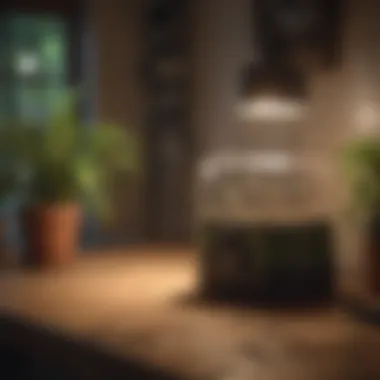

Preventive Measures to Avoid Infestations
To effectively eliminate mosquitoes in your home, it is essential to emphasize preventive measures. Preventing an infestation is more efficient and cost-effective than dealing with an established problem. Mosquitoes thrive in certain environments, and understanding how to create a less inviting space can significantly reduce their presence.
The key elements of preventive measures involve controlling entry points, managing your indoor environment, and utilizing barriers such as screens. Each component plays a vital role in reducing the likelihood of mosquito encounters. Consideration of these factors can make your home much less appealing to these pests.
Sealing Entry Points
Sealing entry points is one of the most effective strategies for preventing mosquito entry into your home. In many instances, mosquitoes can find subtle gaps and cracks in your walls, windows, or doors. It is crucial to inspect and repair any possible openings that could serve as pathways for these insects.
- Check windows and doors: Ensure that all windows and doors are tightly fitted and close properly. Replace any damaged weather stripping or use caulk to fill gaps.
- Look for other entrances: Pay close attention to utility openings, such as those for cables or pipes. These can be sealed with appropriate materials or compounds.
- Install door sweeps: Adding door sweeps to the bottom of your doors can significantly reduce the risk of mosquitoes entering.
By taking these proactive steps, you can create an effective barrier against mosquitoes.
Using Screens on Windows and Doors
Using screens on windows and doors is another practical method of deterring mosquitoes. Properly installed screens can block mosquitoes without sacrificing airflow. This solution is particularly important in regions that experience high mosquito populations during warmer months.
- Choose the right mesh size: Use a mesh screen with a fine enough weave to prevent even smaller mosquitoes from passing through.
- Regular maintenance: Inspect screens for tears or holes frequently, and repair or replace them as necessary to maintain their effectiveness.
- Screened-in areas: Incorporate screened-in patios or porches, which extend your living space while keeping mosquitoes outside.
Screens represent a simple yet effective intervention in your fight against mosquitoes.
Proper Management of Indoor Plants
Indoor plants can attract mosquitoes, particularly if they have standing water in pots or dishes. Managing your indoor plants properly is crucial in limiting mosquito breeding sites.
- Eliminate stagnant water: Always remove any standing water from plant saucers or pots. If water accumulates, it creates an ideal breeding ground for mosquitoes.
- Choose mosquito-resistant plants: Some plants naturally repel mosquitoes. Consider incorporating species like citronella, lavender, or marigolds into your home.
- Regular upkeep: Maintain your plants regularly to avoid any over-watering situations and to ensure the health of your indoor garden.
Managing indoor plants not only enhances home aesthetics but also contributes directly to minimizing mosquito presence.
Chemical Solutions for Mosquito Removal
In the quest for a mosquito-free environment, chemical solutions serve as a vital element in the arsenal of strategies. Their effectiveness is rooted in their targeted action against adult mosquitoes and their larvae. By understanding the types of chemical solutions available and their proper application, homeowners can significantly lessen mosquito populations indoors.
Chemical solutions can eliminate existing infestations and act as a preventive measure against future outbreaks. They work rapidly, offering immediate relief, which is essential during peak mosquito seasons. However, there are considerations to keep in mind, including safety for inhabitants and pets. Proper usage according to labels and guidelines can minimize risks and enhance overall effectiveness.
Studies indicate that synthetic insecticides can disrupt the nervous systems of mosquitoes, leading to their demise upon contact or ingestion. Meanwhile, some formulations also target the breeding cycle, effectively reducing future populations.
Insect Sprays and Aerosols
Insect sprays and aerosols are among the most popular choices for mosquito elimination. They are widely available and typically easy to use. These products often contain active ingredients such as Pyrethroids, which are synthetic versions of natural insecticides.
The application process is straightforward: simply spray areas where mosquitoes tend to congregate or enter the home. This includes corners, under furniture, and around doorways or windows. For optimal results, it is advisable to apply these sprays during the evening or early morning when mosquitoes are most active.
Some benefits of using insect sprays include:
- Instant Effectiveness: Most sprays kill mosquitoes upon contact, providing immediate relief.
- Ease of Use: Aerosols can reach difficult areas without extensive preparation.
- Versatility: Many products can also target other pests, making them useful in broader pest control efforts.
However, caution is warranted. Homeowners should ensure proper ventilation during application and avoid spraying directly on plants that may be sensitive to chemicals.
"Using insect sprays can control mosquito populations effectively if applied correctly and safely."
Fogging Techniques
Fogging is another chemical solution used for mosquito removal, particularly when aiming to cover larger areas. This technique employs special equipment to disperse insecticides in ultra-fine droplets. These particles can penetrate areas where mosquitoes hide, making it an effective solution for both indoor and outdoor spaces.
Fogging can be particularly beneficial before gatherings or social events, as it provides a rapid reduction in mosquito presence. Homeowners can choose to do this themselves using fogging machines or hire professionals who specialize in pest control.
The advantages of fogging techniques include:
- Widespread Coverage: Fogging can treat large areas quickly, eliminating mosquitoes hiding in vegetation or corners.
- Long-Lasting Effects: The insecticide remains effective for several hours, reducing the mosquito population for a substantial time.
- Fast Action: Similar to sprays, fogging delivers quick results against mosquitoes in the treated areas.
However, using fogging requires careful preparation. Ensure that people and pets are out of the area being sprayed to avoid health risks.
By integrating these chemical solutions into pest management strategies, homeowners can create a more livable environment, free from the annoyance and health risks associated with mosquitoes.
Natural Remedies to Repel Mosquitoes
Finding effective methods for repelling mosquitoes is essential for maintaining a comfortable and safe living environment. Natural remedies attract interest because they offer safer and environmentally friendly options compared to chemical solutions. Many homeowners prefer them due to concerns about the potential side effects associated with synthetic repellents. The natural alternatives often provide additional benefits, such as pleasant scents or multifunctional uses in home wellness.
Advantages of Natural Remedies:
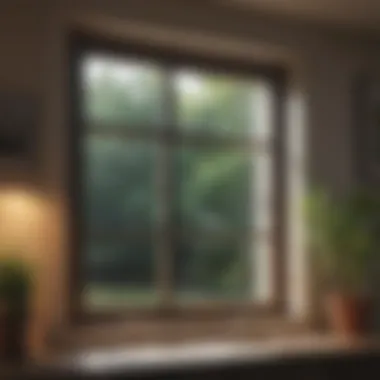
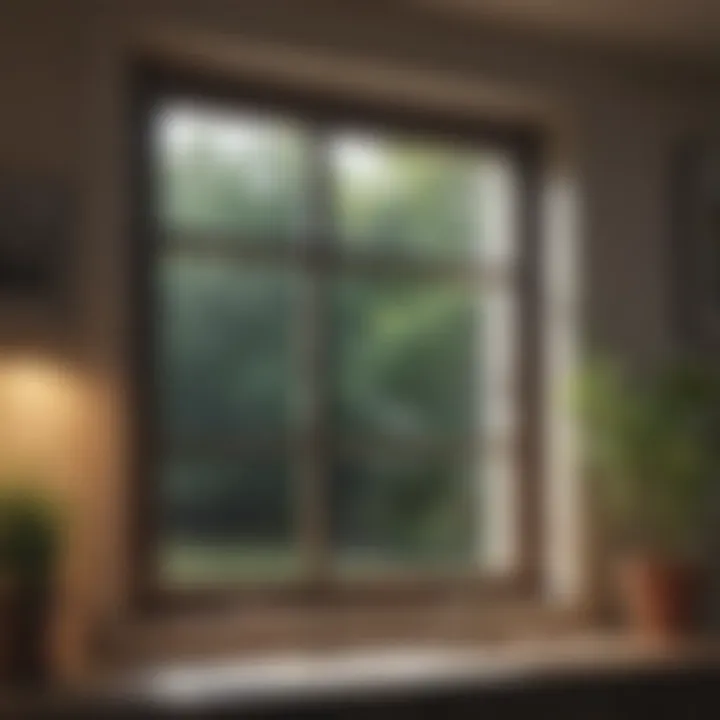
- Safety: Natural remedies generally carry fewer health risks. They often rely on ingredients that humans can tolerate better than harsh chemicals.
- Environmentally Friendly: Many natural solutions avoid harm to the ecosystem, favoring plants and ingredients that biodegrade easily.
- Cost-Effectiveness: Often, common household items can be utilized as effective repellent solutions, making them budget-friendly for anyone facing a mosquito issue.
However, while natural remedies are beneficial, it is essential to understand their limitations and the contexts in which they are most effective. It’s crucial to combine them with other preventive measures for the best results.
Essential Oils and Their Efficacy
Essential oils are widely regarded for their mosquito-repelling properties. Oils such as citronella, eucalyptus, lavender, and peppermint are among the most effective. These oils work by masking scents that mosquitoes are attracted to, making it difficult for them to locate their next meal.
Key Essential Oils:
- Citronella: This oil is frequently used in candles and sprays, providing a strong aroma that can deter mosquitoes effectively.
- Lavender: Known for its calming properties, lavender oil is not only pleasant but also effective against mosquitoes.
- Peppermint: A refreshing scent that mosquitoes dislike.
While essential oils are generally safe, it’s necessary to dilute them with a carrier oil when applying directly to the skin to avoid irritation.
Herbal Solutions for Indoor Spaces
Herbs can also play an important role in controlling mosquito presence indoors. Certain plants act as natural repellents due to their inherent properties. Keeping these herbs around helps not only in repelling mosquitoes but also adds to the decor of the space.
Effective Herbs:
- Basil: Known for its culinary uses, basil releases a strong scent that repels mosquitoes.
- Mint: Like peppermint oil, mint plants can be quite effective against these pests.
- Rosemary: Its scent is not only aromatic but also offensive to mosquitoes.
Consider keeping these herbs in pots near windows and doors, enabling them to contribute to your indoor protection strategy.
Natural remedies are crucial in a comprehensive mosquito management plan. They can provide homeowners with practical and safe methods to reduce mosquito populations within their homes. Integrating these remedies alongside other preventive measures creates a balanced and effective defense against pests.
Technological Solutions to Combat Mosquitoes
Technological solutions play a crucial role in the battle against mosquitoes in indoor environments. These innovations not only simplify the process of mosquito control but also enhance efficiency and effectiveness. Homeowners and pest control enthusiasts are increasingly turning to technology to address infestations, given the ongoing challenge mosquitoes pose in terms of health and comfort.
By employing various devices and systems, individuals can reduce mosquito populations significantly. Some of these methods are passive, requiring minimal interaction, while others necessitate active maintenance. Understanding which technologies suit your particular needs is essential for achieving optimal results.
Ultrasonic Repellents
Ultrasonic repellents are devices that emit high-frequency sound waves, aiming to deter mosquitoes without harming them. The theory behind these devices is that mosquitoes and other pests are sensitive to certain ultrasonic frequencies, which cause discomfort and encourage them to flee from the area.
Key Features of Ultrasonic Repellents:
- Non-Toxic Approach: They offer a chemical-free solution, making them safe for use around children and pets.
- Ease of Use: These devices are generally simple to operate. Users just plug them into an outlet and let them work.
- Widespread Availability: Ultrasonic repellents can be found in many stores and online, offering a range of prices and features.
However, the effectiveness of ultrasonic repellents can vary. Some studies suggest that they may not be as potent as other forms of mosquito control. It's essential for users to keep realistic expectations and combine these devices with additional methods for best results.
Mosquito Traps and Zappers
Mosquito traps and zappers function differently from repellents. They work by attracting mosquitoes using bait or light and then trapping or exterminating them. This approach can be highly effective, especially in persistent infestations.
Types of Traps and Zappers:
- CO2 Traps: These release carbon dioxide to mimic human breath, effectively luring mosquitoes before capturing them.
- UV Light Zappers: These attract mosquitoes with ultraviolet light. Once close enough, mosquitoes are zapped by an electric grid.
Benefits of Mosquito Traps and Zappers:
- Targeted Elimination: They directly reduce mosquito populations, which can lead to an overall decrease in bites.
- Continuous Operation: Many traps and zappers operate continuously, providing ongoing protection.
It is advisable to position these devices in areas susceptible to mosquito entry. However, it’s important to regularly clean the traps to maintain their efficiency.
"Integrating technological solutions not only protects your space but also contributes to a comprehensive mosquito management strategy."
Integrating Disinfectant Products
Disinfectant products play a crucial role in the broader strategy of mosquito control within the home. These products can help to eliminate not only the adult mosquitoes but also their larval stages, thus addressing the potential sources of future infestations. Utilizing disinfectants in conjunction with other control measures significantly strengthens your efforts. They work by sanitizing surfaces where mosquitoes might land or breed, and this can lead to a reduction in overall mosquito presence.
Key benefits of incorporating disinfectant products include:
- Reduction of mosquito breeding sites: Some disinfectants can kill mosquito larvae in standing water.
- Elimination of attractive scents: By keeping environments clean, disinfectants can help to mask the scents that attract mosquitoes.
- Maintaining hygiene: Disinfecting regularly contributes to a healthier indoor environment, reducing the presence of other pests as well.
However, it is important to carefully select your disinfectants based on active ingredients and application methods. Some may not be effective against all types of mosquitoes or may have unwanted side effects on your household. Therefore, a targeted approach is necessary to ensure their effectiveness while prioritizing safety for people and pets in close quarters.
Choosing the Right Disinfectants
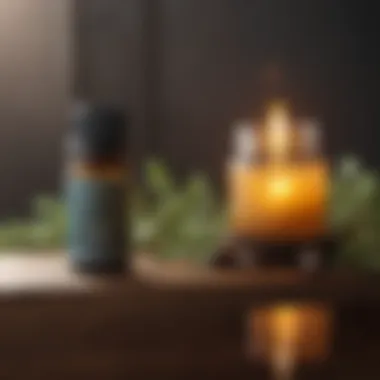

When selecting disinfectants for mosquito control, consider the active ingredients. Some of the most effective options include:
- Pyrethroids: These are synthetic chemicals similar to natural insecticides derived from chrysanthemum flowers. They are effective against adult mosquitoes.
- Bacillus thuringiensis israelensis (Bti): This is a naturally occurring bacterium that targets mosquito larvae in water bodies. It is often recommended for use in standing water where mosquitoes breed.
- Quaternary Ammonium Compounds: Commonly found in household disinfectants, these compounds can help in daily cleaning and contribute to overall mosquito repellent effects.
Be aware of the label instructions on any product you choose to ensure it's safe for indoor use. Some disinfectants might have a strong odor or require specific ventilation, so understanding how these factors interact with your living space is essential.
Application Techniques for Effectiveness
Proper application of disinfectants enhances their efficacy. Consider the following techniques:
- Targeting Breeding Sites: Apply Bti in stagnant water areas—like plant pots or bird baths—where mosquitoes breed.
- Surface Application: For indoor surfaces, utilize sprays that meet your home's basic cleaning requirements. Ensure even coverage while following the manufacturer’s instructions. This helps in minimizing places where mosquitoes can land and breed.
- Routine Disinfecting: Consistency is vital. Establish a routine for using disinfectants, especially in areas prone to lingering moisture or those that attract other insects.
"Using disinfectant products responsibly can greatly enhance your strategy against indoor mosquito infestations, ensuring your home remains a haven rather than an attraction for pests."
In integrating these practices effectively, homeowners can establish a stronger defense mechanism against not only mosquitoes but also against influences that could draw them into their spaces.
Indoor Maintenance for Mosquito Control
Indoor maintenance for mosquito control encompasses a variety of strategies ensuring that living environments remain as inhospitable as possible for these pests. By maintaining a clean and organized space, homeowners can significantly mitigate the risk of mosquito infestations. This section focuses on the crucial elements of indoor maintenance, detailing both the benefits and considerations necessary for effective control of mosquitoes within the home.
Regular Cleaning and Organization
The first step in any effective mosquito prevention strategy is regular cleaning and organization. Mosquitoes thrive in cluttered and messy spaces. Such environments can provide them with hidden areas for breeding and resting, making it easier for them to proliferate. A systematic approach to cleaning can help eliminate these opportunities for mosquitoes to thrive.
- Dusting and Sweeping: It is important to dust and sweep areas regularly. Pay close attention to corners, under furniture, and any accumulated debris. These are potential sites where mosquitoes can hide.
- Decluttering: Remove unnecessary items from living spaces. Items like old boxes, clothes, and unused furniture not only create clutter but can also collect water, which is a breeding ground for mosquitoes.
- Sanitizing Surfaces: Use appropriate cleaning products to sanitize surfaces. A clean surface is less likely to attract pests and can help diminish any odors that may entice them.
By creating a habit of regular cleaning, homeowners can reduce the chances of mosquitoes finding a comfortable home inside.
Managing Humidity Levels
Humidity plays a significant role in mosquito activity and reproduction. Mosquitoes require moisture both for breeding and to survive. Therefore, managing indoor humidity can be an effective control measure.
- Dehumidifiers: Utilizing dehumidifiers in areas with high moisture can significantly decrease humidity levels. This is particularly important in basements or laundry rooms, which are prone to high humidity.
- Ventilation: Ensure adequate ventilation in your home. Open windows when possible, and consider using fans. This not only reduces humidity but also helps circulate air, making it less favorable for mosquitoes.
- Fixing Leaks: Regularly check for and repair any leaks in pipes or roofs. Standing water from such leaks can provide excellent breeding grounds for mosquitoes.
Maintaining optimal humidity levels can disturb the breeding cycle of mosquitoes and lead to a less hospitable environment.
By combining regular cleaning with effective humidity management, homeowners can significantly reduce the chances of mosquito infestations and create a more comfortable living space.
Long-term Strategies for Prevention
Long-term strategies for preventing mosquito infestations are essential because they create a controlled environment that minimizes the likelihood of these pests thriving. More than just a reactive measure, a proactive approach focuses on sustainable practices that address factors attracting mosquitoes. By implementing consistent strategies, homeowners can significantly reduce their interactions with these insects.
Seasonal Preparations
Essential to long-term prevention is seasonal preparation. As seasons change, so do the behaviors of mosquitoes. For instance, during the warmer months, these pests become more active, prompting a need for heightened vigilance. Homeowners should consider the following:
- Inspection of Outdoor Areas: Regularly check yards for standing water, a prime breeding ground for mosquitoes. This includes bird baths, clogged gutters, and plant pots.
- Water Management: Utilize proper drainage systems, ensuring areas around the home do not collect water.
- Foliage Maintenance: Trim bushes and grasses that may harbor mosquitoes. Keeping vegetation tidy decreases resting spots for adults.
- Plant Selection: During planting seasons, opt for mosquito-repelling plants such as citronella, marigolds, or lavender. These can deter mosquitoes naturally.
Community Prevention Initiatives
Community prevention initiatives are also vital for long-term protection against mosquitoes. Mosquito control is not solely an individual obligation; local collaborations can enhance efforts:
- Awareness Programs: Education campaigns can inform residents about mosquito risks and prevention methods. Engaging local schools or community centers might improve outreach.
- Neighborhood Cleanups: Organizing events to clean up communal areas, particularly those prone to standing water, fosters collective responsibility.
- Pest Control Collaborations: Partner with local pest control services for community-wide treatments. Group dynamics can yield better outcomes and possibly reduced costs.
"A committed community approach allows for a comprehensive defense against mosquitoes, making efforts more impactful."
These long-term strategies not only improve individual home environments but also empower communities to remain vigilant against mosquitoes. Regular evaluation and adjustment of these practices will ensure that they stay effective, fostering a healthier living space. Implementing these measures promotes peace of mind and enhances overall quality of life.
Understanding the Health Risks Associated with Mosquitoes
Mosquitoes are more than just an annoying presence in our homes. They are vectors for various diseases that can significantly impact health. Understanding the health risks associated with these insects is crucial for effective control and prevention. Individuals often overlook the threats that these small creatures pose, but increasing awareness can lead to better safeguarding measures for households. This knowledge empowers residents to take decisive actions against mosquito infestations, enhancing overall well-being.
Disease Transmission and Impact
Mosquitoes are responsible for the transmission of several serious diseases. Some of the most notable include malaria, dengue fever, Zika virus, and West Nile virus. Each of these conditions has severe health implications, ranging from flu-like symptoms to long-term complications or, in some cases, death.
- Malaria: Primarily found in tropical regions, malaria affects millions of people each year. It can lead to severe illness and mortality if untreated.
- Dengue Fever: This illness is common in urban and suburban areas of tropical and subtropical climates, leading to high fever, severe headaches, and joint pain.
- Zika Virus: Transmission of Zika virus has raised concerns, particularly concerning pregnancy. The effects on newborns can be devastating.
- West Nile Virus: Typically associated with mild flu-like symptoms, in some cases, it can lead to serious neurological diseases.
Due to their role in disease transmission, mosquitoes can be considered a public health threat. It is important for homeowners to stay informed about these risks to implement appropriate measures to mitigate them.
Protective Measures for Health
The best way to combat the health risks posed by mosquitoes is through preventative strategies. Here are several practical measures:
- Use Repellents: Apply insect repellents that contain DEET, picaridin, or oil of lemon eucalyptus before going outdoors.
- Wear Appropriate Clothing: Loose-fitting, long-sleeved shirts and long pants can minimize skin exposure.
- Eliminate Standing Water: Mosquitoes breed in stagnant water. Regularly check for areas of standing water in your home and yard.
- Install Screens: Ensuring windows and doors are properly screened can keep mosquitoes outside where they belong.
- Maintain Landscaping: Keeping your yard well-trimmed and cleared of debris can eliminate potential breeding grounds.
Taking these measures can drastically reduce the likelihood of mosquito bites and the associated health risks. It is essential to combine awareness with action for an effective mosquito control strategy.







